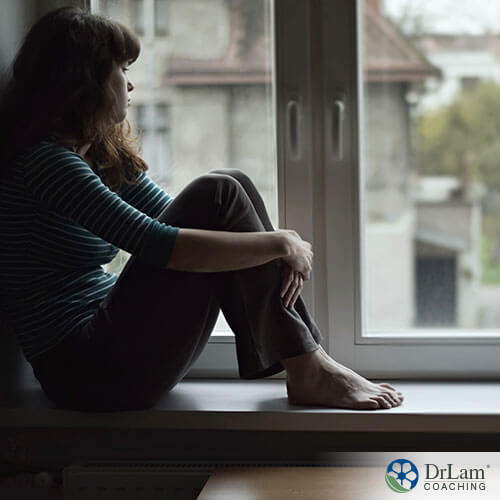 Social distancing and social isolation have become concepts that everyone is familiar with. Yet for many, these very same concepts aimed at protecting your health result in loneliness. And loneliness, according to research, may have a greater negative effect on your health than being overweight or smoking. So what can we do to overcome social distancing and its resulting loneliness?
Social distancing and social isolation have become concepts that everyone is familiar with. Yet for many, these very same concepts aimed at protecting your health result in loneliness. And loneliness, according to research, may have a greater negative effect on your health than being overweight or smoking. So what can we do to overcome social distancing and its resulting loneliness?
There are important reasons why social distancing is being recommended during the coronavirus pandemic. It is to protect the unaffected, stop the spread of the virus, and prevent those infected from infecting others. This makes perfect sense. The aim is to protect your physical health and wellbeing.
But what about your mental health?
Let’s face facts: everyone gets lonely sometimes. But being forced into isolation for a long period, or being in a position where you get no human contact, leaves you not only feeling isolated but feeling lonely. You cannot pop over to see a friend or a family member for some social interaction. And it is not only limited to older people. It affects everyone, no matter your age.
Interestingly, studies show that loneliness and social isolation are correlated with an increase in the mortality rates in the elderly. So, while we need to look out for the health of ourselves and our families, we also need to learn how to overcome social distancing and its effects on our mental wellbeing. Social distancing could affect your brain’s Neuroaffect circuit and increase stress if you are usually a social person.
Loneliness is a feeling of being cut off from other people, whether due to self-isolation, social distancing, or even misunderstandings. You are unable to interact with other people on a social level. This may lead to feelings of bleakness, sadness, desolation, and even anxiety and depression.
Common symptoms associated with loneliness include:
You need to overcome social distancing and the related loneliness it may cause because it may increase your blood pressure and your stress hormone levels. High stress hormone levels - particularly cortisol - may have a negative effect on your overall physical and mental health.
Your Neuroaffect circuit is one of the six circuits making up your body’s NeuroEndoMetabolic (NEM) Stress Response. It is made up of your brain, autonomic nervous system, and microbiome and plays a large role in supporting mental health.
The three parts of your Neuroaffect Circuit use what are called neurotransmitters to communicate with each other. They play a very important part in brain and body health. If you continue to stress or even have perceived stress, it throws your cortisol levels out of range. This is a common problem in adrenal fatigue, when serious stress overloads your adrenal glands' response system. Stress and cortisol levels could also affect your immune system, making you more susceptible to illness.
Loneliness and its corresponding stress when you cannot overcome social distancing may result in increased cortisol levels in response to stress. At the same time, however, other processes in your body like hormone production, for example, may decrease.
Health issues related to stress include, amongst many others:
Please note that these health issues are all related to Adrenal Fatigue Syndrome (AFS). Continued stress, in addition to loneliness, may eventually result in an adrenal crash with its own set of complications and related health issues.
People most at risk of developing feelings of loneliness if they cannot overcome social distancing issues include the following:

Those who find it the hardest to overcome social distancing are those who do not have an active social life. These are a few guidelines to overcome social distancing and erase those feelings of loneliness.
Getting outdoors more often is an excellent way to overcome social distancing, whether it is to do some work on your property or going to a park. Exposure to sunlight and fresh air is nature’s way of increasing your brain’s serotonin levels. Serotonin is a "feel-good" hormone. If you up the levels of this hormone, you are less likely to feel lonely, sad, or depressed.
While it is fine to interact on social media, you do run the risk of becoming isolated from normal human contact and not getting enough sunlight or exercise. Interestingly, research strongly shows that people who interact online for more than two hours a day are at a higher risk of developing feelings of isolation and loneliness. What is more, the younger you are, the more your risk of loneliness, according to these studies. When you do interact online, consider spending time video chatting with old friends, relatives, or neighbors, such as through an application like FaceTime or WhatsApp.
As strange as it may seem, long periods spent in front of the television may result in loneliness and depression, according to studies. Therefore, limit your television time to a certain time of the day and, for the rest, engage in other activities.
A hobby keeps you busy, keeps your mind occupied, and give you a sense of connection. According to various studies, a hobby has great mental and physical health benefits and, during times of social distancing, provides a creative outlet that has a positive impact on your overall health and wellbeing.
It is okay to isolate yourself when you feel the need for some solitude. However, when you are lonely, you need to reach out to your loved ones, whether it is a family member or a friend. Phone calls and video calls are preferable to text, but any form of reaching out to others is better than none. This could be a great time to reach out to distant relatives and old friends, who may be feeling lonely themselves.
Many people find it difficult to find a work-life balance. Their work may consume their waking hours, leaving them very little time for any social interaction. This often leads to exhaustion and loneliness, neither of which are good for your mental or physical health. You need to make time in your life for social interaction, self-care, and rest.
 Research shows that pet owners have a reduced risk of loneliness when living along than their single counterparts who don’t. Now, while most people think of a cat or a dog when talking about a pet and do not want the responsibility, or may be allergic to, these four-legged furry friends, you could also think outside of the box. Have you considered a goldfish, or a tank filled with fish, or a bird as a companion? Even a hamster counts as a pet.
Research shows that pet owners have a reduced risk of loneliness when living along than their single counterparts who don’t. Now, while most people think of a cat or a dog when talking about a pet and do not want the responsibility, or may be allergic to, these four-legged furry friends, you could also think outside of the box. Have you considered a goldfish, or a tank filled with fish, or a bird as a companion? Even a hamster counts as a pet.
While it is true that a pet does not give you the same interaction as other humans, they do bring an element of joy to our lives. Plus, caring for the needs of another living being tends to take the focus away from ourselves. It also reduces feelings of loneliness.
Like pets and a hobby, plants also give you something to care for and focus on. Surprisingly, plants also give you something to talk about with your neighbors, such as how to care for plants in your local climate and where to find good mulch and fertilizer. Even growing plants in pots inside your apartment is a good place to start. Plants can provide both beauty and food as well.
For those who find it difficult to make friends, involvement in a community group provides social interaction and support. There are many community groups coordinating work online now. At the same time, serving your community in some manner also deals with the issues of connecting with others on a social level and reduces loneliness. This is especially true amongst the elderly. This is a great time to volunteer your skills to help others.
If you are experiencing loneliness during this time, it is important to know that you can overcome social distancing issues and loneliness. All it takes is a little effort and some thinking out of the box to get connected to others.
If you have trouble overcoming social distancing issues, here are a few things you can do to help alleviate the situation.
Whatever course of action you decide to take, please remember that overcoming social distancing issues involves you taking the first step. Take that first step, get involved, allow others into your life, and reap the benefits.
If you would like to know more about how to manage health issues related to social distancing and loneliness, the team at Dr. Lam Coaching can help. We offer a free** no-obligation phone consultation at +1-626-571-1234 where we will privately discuss your concerns. You can also send us a question through our Ask The Doctor system by clicking here.
© Copyright 2020 Michael Lam, M.D. All Rights Reserved.
Many issues impact adrenal health, although stress is the main cause of adrenal fatigue. If you overcome social distancing issues like loneliness that lead to stress, you lessen your stress levels. In so doing, you support your adrenals. So, overcoming these issues may support adrenal health.
